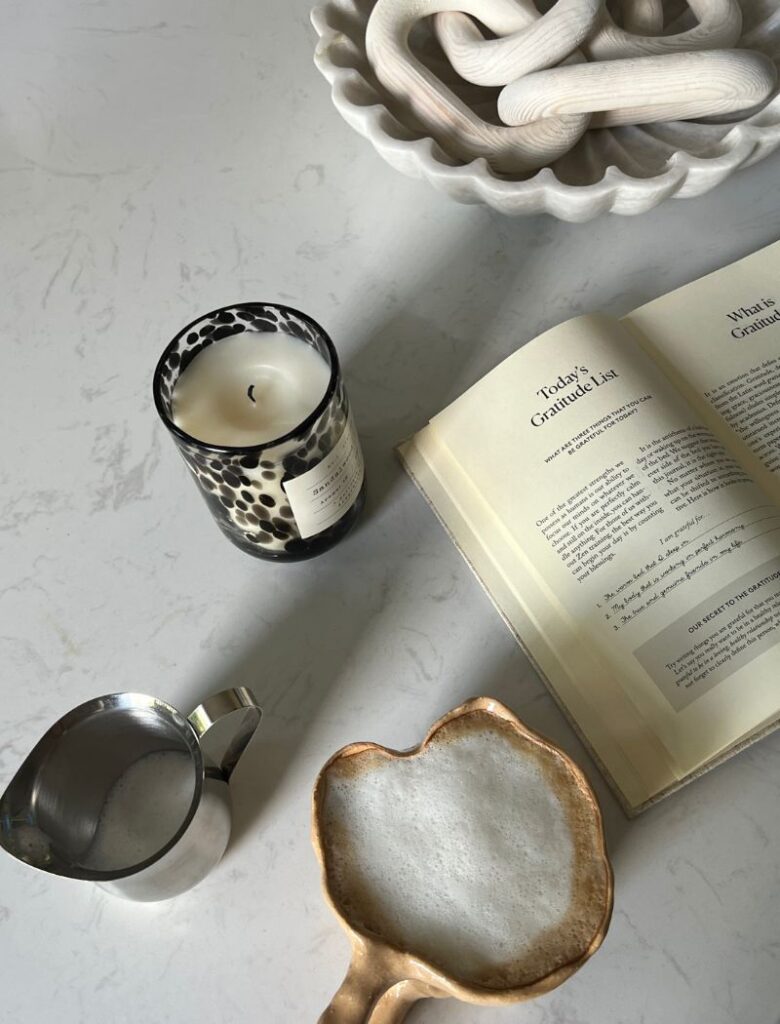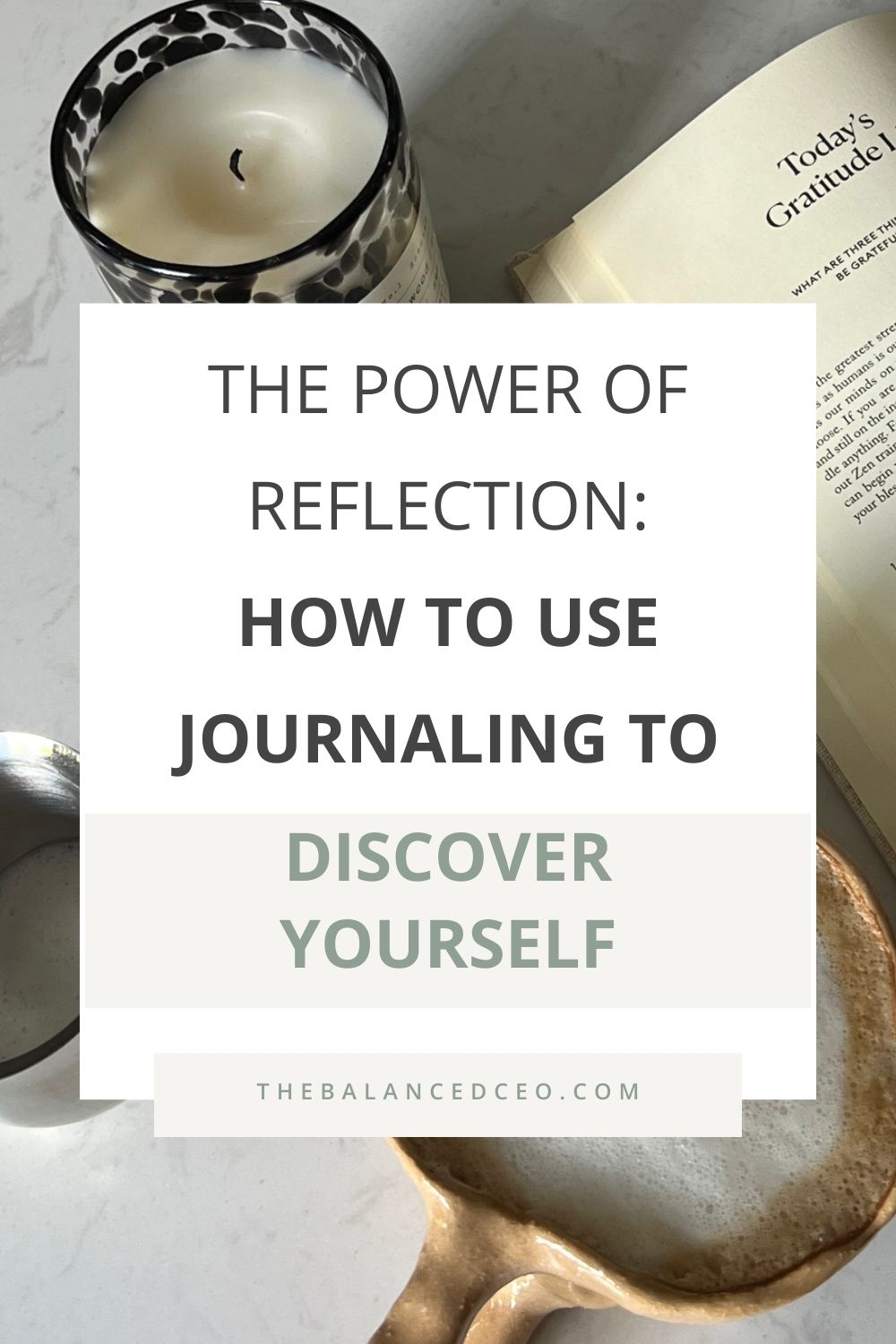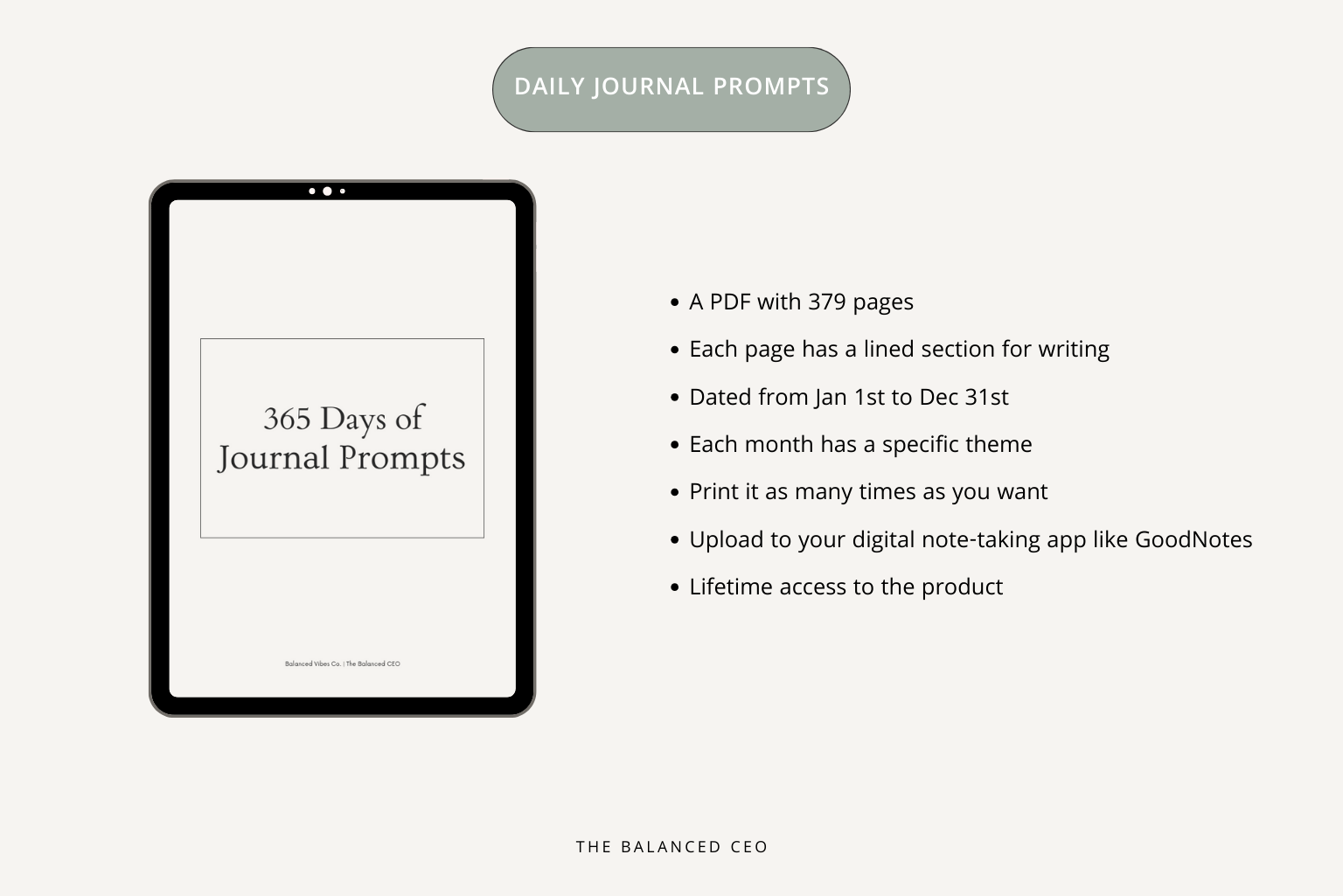This post may contain affiliate links, which means I’ll receive a commission if you purchase through my links, at no extra cost to you. Please read full disclosure for more information.

Journaling is one of the most effective and beneficial ways to take care of your internal world. It’s also strikingly accessible, easy to do once you make a habit of it, and serves as a powerful space for self-reflection and self-awareness.
There’s a reason why so many wellness experts recommend journaling as a tool for reducing stress and improving mental health.
You don’t need to be a professional writer to reap the benefits of a good journal.
Far from it!
If you can write, you can journal, and doing so can prove to be one of the healthiest habits you make this year.
Why Is Journaling Such A Powerful Tool For Self-Reflection?
Cultivating a deeper understanding of yourself is a noble pursuit.
But finding the right moments and tools for that kind of sincere reflection can be difficult amidst the chaos of everyday life. Fortunately, there are ways to get around it – and one of them is the practice of writing (or drawing, or both) your thoughts in a stream-of-consciousness style flow, AKA journaling.
Not everyone is a verbal processor, and expressing your innermost thoughts and emotions can be tough if you’re prone to shyness or fears of social judgment.
But journaling removes all that external clutter. It provides you with a totally private space to examine yourself and work through all kinds of feelings or experiences you may be having.
And once you’ve written them out, you can read them all back to yourself as an exercise of earnest self-reflection and of profound personal truths.
Journaling can help you find answers to important personal and existential questions, such as:
- What is my purpose in life?
- Who am I when nobody else is around?
- What kind of person do I aspire to be?
- What attributes do I love about myself, and what flaws can I work on?
- What are my personal goals for the future?
Without the right environment or space to ask yourself questions like these, it can be hard to tap into the deeper layers of the psyche-dermis for enhanced self-awareness and discovery.
So, without further ado, let’s jump into some simple but highly effective ways to introduce journaling to your everyday routine:
1. Get a journal you love
Step one to using journaling to discover yourself: get a journal. It can be any empty-paged book you like, but selecting one that makes you truly happy inside will encourage you to use it more often.
If you can, choose a journal that has good quality paper, a beautiful, durable cover, and an appearance that invites you to want to use it on a regular basis. Remember, this is a book that will contain hundreds of future precious thoughts and moments, so choose it with care.
2. Experiment with different styles of journaling
There are so many different ways to express thoughts, feelings, and ideas. And not all of them will necessarily work for you. If you’re not accustomed to journaling and are still seeking a way to find your groove in this self-reflective exercise, give yourself a bit of legroom to explore different styles:
- Regular journaling – processing memories, thoughts, and feelings via written word
- Doodling – use visual shapes and figures to reflect on your feelings
- Stream of consciousness – write whatever abstract words or phrases that come to mind
- Gratitude journaling – writing specifically about things you are grateful for
- Dream journaling – write about your dreams first thing in the morning
These are just a few examples of ways to process your emotions and experience self-discovery through journaling. Try out a couple and see which ones work best for you.
3. Let go of self-judgment
Part of the beauty of journaling for self-reflection is that it is completely private. The information it contains is for your eyes only—and as such, you can free yourself of the self-judgment and simply let loose.
Relish in the comfort of knowing that you can express yourself sincerely and without external perception. That is often where the biggest epiphanies happen.
4. Use prompts
When it comes to unveiling deeper thoughts and emotions, it can be hard to know where to start. In moments such as these, you can turn to prompts that add structure to your process. Prompts like:
- A recent situation that challenged you
- An (unsent) letter to someone who made a big impact on your life
- A list of things you are grateful for
- A list of some of your most pivotal memories
Use these prompts as guidelines for approaching your experiences in a more constructive way. When you’re feeling the desire to reflect but aren’t sure how to go about it, these can make all the difference.
5. Reassess your relationships
Often, the people around us have the biggest impact on our lives. A journal provides a completely safe space for you to delve deeper into your relationships and recognize which ones are healthy and which are less so.
Perhaps you’re questioning your compatibility with a romantic partner, uncertain about emotions a loved one has stirred up, or facing a challenging family situation. Writing down your thoughts allows for greater introspection and helps you to determine what’s best for you.
6. Stick with it – habits take time to develop
Consistency is the key to developing any new habit, and self-reflective journaling is no exception. If you’re struggling to keep it up, you may benefit from a bit of routine – such as setting aside a certain time of the day for a page or two of processing.
Many people report that early morning is a productive time to reflect on personal matters, but you can choose any time of the day that feels right to you.
Just keep it up and observe as the puzzle pieces of your life slowly come together to form a greater picture. You can do it!
Journal Your Way To Introspection
Just like any healthy habit, practicing self-reflection through journaling takes time and effort. Sometimes, it may even be a little bit uncomfortable to be confronted with your various foibles and adventures along the way. But that’s what makes us human!
But with enough consistency, journaling can help you on your path of self-discovery and encourage you to form a deeper and richer relationship with yourself.






Leave a Reply